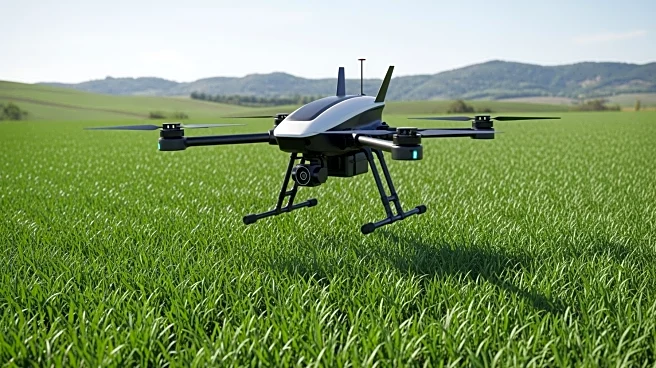What's Happening?
DJI Agriculture has announced the launch of its latest Agras drones—T100, T70P, and T25P—targeting markets in Europe, Central Asia, and Africa. These drones are designed to enhance precision farming with
features such as higher payload capacities, advanced safety systems, and AI-powered automation for crop protection and spreading. The new models will be showcased at Agritechnica 2025 in Hannover, Germany. DJI is also expanding its DJI Academy training program across Europe to help operators master these technologies. The initiative represents over 13 years of research and development aimed at advancing sustainable agriculture globally.
Why It's Important?
The introduction of these advanced drones by DJI Agriculture is significant for the agricultural industry, particularly in regions where precision farming can greatly enhance productivity and sustainability. By offering improved efficiency and safety features, these drones can help farmers optimize crop management and reduce resource wastage. The expansion of the DJI Academy training program further supports the adoption of these technologies, ensuring operators are well-equipped to utilize them effectively. This development could lead to increased agricultural output and contribute to global food security.
What's Next?
DJI Agriculture plans to continue its expansion into new markets, potentially increasing its influence in the global agricultural technology sector. The company may also focus on further innovations in drone technology to address evolving agricultural challenges. Stakeholders such as farmers, agricultural businesses, and policymakers are likely to monitor the impact of these drones on farming practices and productivity. The success of these models could encourage other companies to invest in similar technologies, fostering competition and innovation in the industry.
Beyond the Headlines
The deployment of advanced agricultural drones raises questions about the ethical implications of automation in farming, including the potential displacement of traditional farming jobs. Additionally, the reliance on technology for crop management may necessitate discussions on data privacy and security, as drones collect and process significant amounts of agricultural data. Long-term, the integration of AI and automation in agriculture could lead to shifts in farming practices and rural economies.









